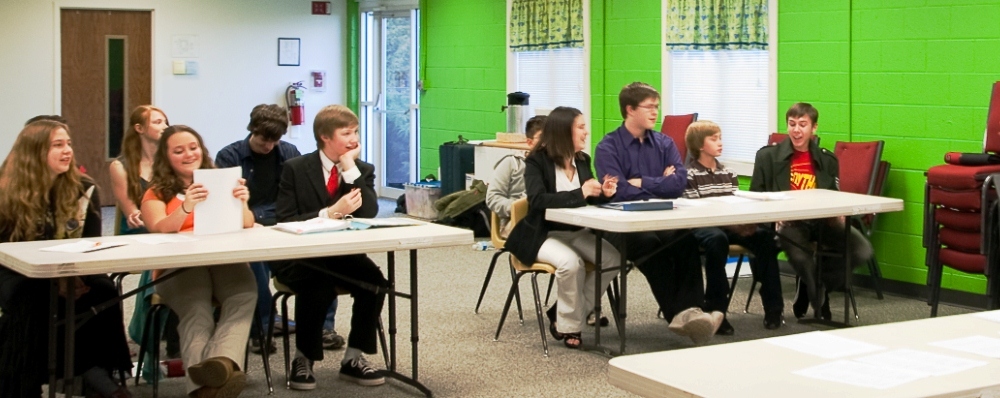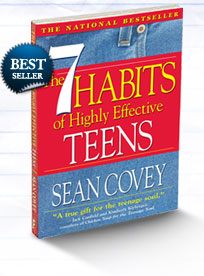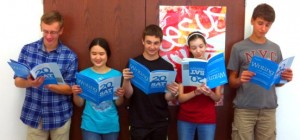 (reprinted and adapted with permission by Sue McMillin, With Time to Spare, www.withtimetospare.com)
(reprinted and adapted with permission by Sue McMillin, With Time to Spare, www.withtimetospare.com)
It’s silent and insidious. It frustrates our hopes and dreams. It tempts us to avoid the things we feel incompetent in doing, to put off the things we’re uncomfortable with, don’t like to do, or simply don’t care to do.
Its name: Procrastination.
In this past year, how many school- or life-changing inspirations have we received but failed to accomplish because we believed Procrastination’s lies?
Here are 7 actions that can help us defeat Procrastination:
1) Establish deadlines. Give yourself plenty of time to accomplish the work. A realistic deadline will inspire you to finish the task. After establishing this deadline, stick to it.
2) Be a finisher. Complete one simple task before starting another. Proofread the paragraph in the report before you go to lunch. Break big projects into smaller, manageable parts.
3) Build in a reward. Reward yourself when you finish a project or a portion of the project.
4) Be accountable. Have a parent or a study partner check on your progress when doing a long-term report or project. If they point out weakness in your progress, don’t begrudge them. Incorporate the good advice and push forward.
5) Say “NO” to less important duties. Focus on your goals and priorities and don’t let less important requests interrupt those key moments when you are about to finish a critical task.
6) Renew yourself. Maybe it’s time to pause and gather yourself for the last, big push. Play a computer game. Walk around the block. Refresh yourself and then go back to wrap up that critical task or project.
7) Eliminate perfectionism from your thoughts and vocabulary. Perfectionism is deadening. The trap of perfectionism will sap your energy, kill your creativity and encourage procrastination.
Bottom Line: Plan your work and work your plan. Establish realistic milestones with deadlines. Identify the parts of your assignment where you will be tempted to procrastinate. Start those difficult tasks when you are alert and have high energy. Build in rewards, encourage feedback from a parent, say no to less important tasks and toss perfectionism out the window! And if worse comes to worse, step away and renew yourself.








 “I really learned how to manage my time in writing timed essays, plus the importance of original thinking in my writing. I must say that this is my favorite SAT essay workshop out of the three I have taken. Plus I’ll never forget the friends I made there.”
“I really learned how to manage my time in writing timed essays, plus the importance of original thinking in my writing. I must say that this is my favorite SAT essay workshop out of the three I have taken. Plus I’ll never forget the friends I made there.” “Now the far-off goal of getting a great SAT score is within my reach. Now I feel confident in writing any kind of essay and that;s why I think others should take this workshop.”
“Now the far-off goal of getting a great SAT score is within my reach. Now I feel confident in writing any kind of essay and that;s why I think others should take this workshop.” “Even though it was only a 3-day workshop, I feel more prepared to take the SAT essay and any other test with timed essays that I might run into. And I had fun working with the other students.”
“Even though it was only a 3-day workshop, I feel more prepared to take the SAT essay and any other test with timed essays that I might run into. And I had fun working with the other students.” “This workshop has hugely expanded my ability to write any kind of essay beyond the SAT. Plus I meet a bunch of cool students.”
“This workshop has hugely expanded my ability to write any kind of essay beyond the SAT. Plus I meet a bunch of cool students.” “I learned how to write a high-scoring essay. Other students should take this workshop. The format was easy to follow and I felt at ease.”
“I learned how to write a high-scoring essay. Other students should take this workshop. The format was easy to follow and I felt at ease.” “This class is a fun and valuable experience. I learned a whole lot. And again, it is fun!”
“This class is a fun and valuable experience. I learned a whole lot. And again, it is fun!” “The techniques you learn in the workshop help you complete the essay on time with all the needed components to get a high score.”
“The techniques you learn in the workshop help you complete the essay on time with all the needed components to get a high score.”